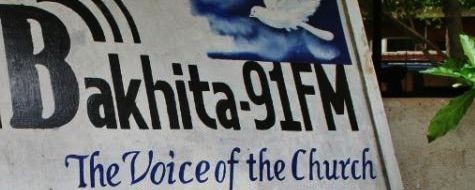The Auxiliary Bishop of Juba Archdiocese on Friday used an image of death to describe the leaders of South Sudan and Sudan, calling them “dry bones” in need of spiritual revitalization.
This comes after the South Sudanese government shut down Bakhita FM, the Roman Catholic Church’s radio station in Juba.
Bishop Santo Loku Pio said he was forced to conclude that “dry bones are in charge of governance.” He referred to the conflict situations in the two countries, and pointed also to great fear among citizens in Juba who “choose to be prisoners” by living under UN protection “because of being afraid of leaders.”
The bishop’s use of the term ‘dry bones’ appears to be a reference to a vision of the prophet Ezekiel, described in the Bible, in which the prophet sees a valley littered with dry bones. He is then asked by God, “Can these bones live?”
The bishop said that the authorities “need to embrace love for God and one another to revitalize their diminishing spiritual flesh.”
He was speaking on Friday on behalf of the Archbishop while closing a workshop of the Association of Member Episcopal Conferences in Eastern Africa (AMECEA), a collaborative organization of Catholic churches of East Africa.
Meanwhile, the Diocese Vicar-General in Yei Catholic Diocese is reported to have expressed “sadness” at the closure of Bakhita Radio, the Catholic Church’s radio station in Juba.
All of the station’s programmes have been off-air for more than a week, including religious messages, music, social affairs programmes and news programmes.
Fr Zachariah Angutuwa Sebit, the vicar-general, said he hoped the station could be reopened in order to transmit Sunday prayer services.
He also “encouraged journalists never to be afraid, but remain professional in facing threats and challenges of the media industry.” He told journalists “not to recoil” due to threats.
Meanwhile, a church worker in Juba told Radio Tamazuj that security officials last week complained not only of the church’s radio station but also of the church itself, saying it should not criticize the government.
Related coverage:
South Sudan aims to censor Catholic Church radio (21 Aug.)




